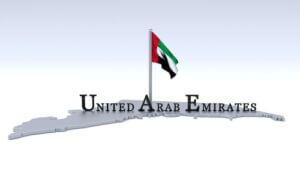Advice for Employers and Recruiters
Graduate’s Guide to Living and Working in the UAE
With college over, it’s time for new graduates to find their first jobs. As the job market slows down in North America and Europe, the United Arab Emirates (UAE) is a place where your experience, skills and qualifications may get you a more satisfying vocation. The UAE is noted for its modern infrastructure and has become the Middle East’s major hub for trade, transport and tourism. In addition, working and living in a country with a markedly different culture from home provides an excellent opportunity to improve your communication skills and build self-reliance. With this in mind, this guide covers the basics that you need to know before you make the move to the UAE.
Banking and managing finances
International and local banks are well represented in the UAE. You can choose to open an account either before departure or upon arrival. You may not be able to use all the facilities such as a cheque book until you receive your residency visa. However, you’ll get a credit card. Your company may have a preferred bank that offers services such as car and housing loans at competitive rates. Some companies may apply for an account with a business credit card for employees. Recently, the Emirates have been piloting an initiative to integrate bank accounts with Emirati ID cards. In the future, new customers will be able to open an account online and get their accounts activated with an active debit card on their ID cards.
With no income tax on salaries in the UAE, you can save more than at home. It can be all too easy for expats to spend their wealth as fast as they earn it here, so it’s important to carefully manage your finances with the right savings and investment products. Consult a qualified financial advisor on how best to save, invest and grow your money.
Job sectors and salaries
To reduce dependence on oil, the UAE government has devised sound strategic plans and undertaken the goal of establishing a highly diversified and globally-competitive economic base. According to HSBC’s purchasing managers index survey, business performance for the last quarter of 2013 was the strongest in the survey’s history. With large amount of capital invested in economic development programmes, there will be plenty of job opportunities in the manufacturing, construction, real estates, banking and financial, education and tourism sectors.
The UAE is the regional base for many international organisations such as UN Development Programme and multinational corporations such as Microsoft, FedEx, HSBC, Marriott Hotel and Pepsi. With Dubai’s successful bid for Expo 2020, around 277,000 jobs will be created leading up to the event. About 40% of these jobs will be in travel and tourism. Other sectors that will benefit from the Expo include construction, real estate and finance.
Culture and language
Moving to the Middle East will expose you to huge differences in culture, which can be a positive thing, so long as you are respectful and aware of these differences. The UAE is a Muslim country and there are several local customs, laws and religions that it would be wise to familiarise yourself with. There is also a distinct separation of genders in everyday life – men and women often do not shake hands or engage in physical contact outside of family and female foreign workers should be aware that covering shoulders and legs is expected, apart from some more informal beach resorts. However, as a nation of expatriates, there are many expatriates from Asia, Europe and North America so will find workplaces in the UAE to be multi-cultural and it can easier to settle in to your own community than in some neighbouring states.
While English is used in business, knowledge of Arabic will improve your job prospects. A survey conducted by Bayt.com found that about 51% of UAE employers prefer candidates with good communication skills in both English and Arabic. However, being proficient in Arabic is not a key requirement for most positions. Companies in the construction sector where there is a need for very specialized skills will be looking for engineers and project managers with the right experience and technical skills.
Starting in a new country anywhere in the world isn’t an easy task and landing your dream job may not happen straight away. Give yourself time to settle in; if you make the effort to integrate into your new homeland, you will generally receive a warm welcome.
New Job Postings
Advanced Search